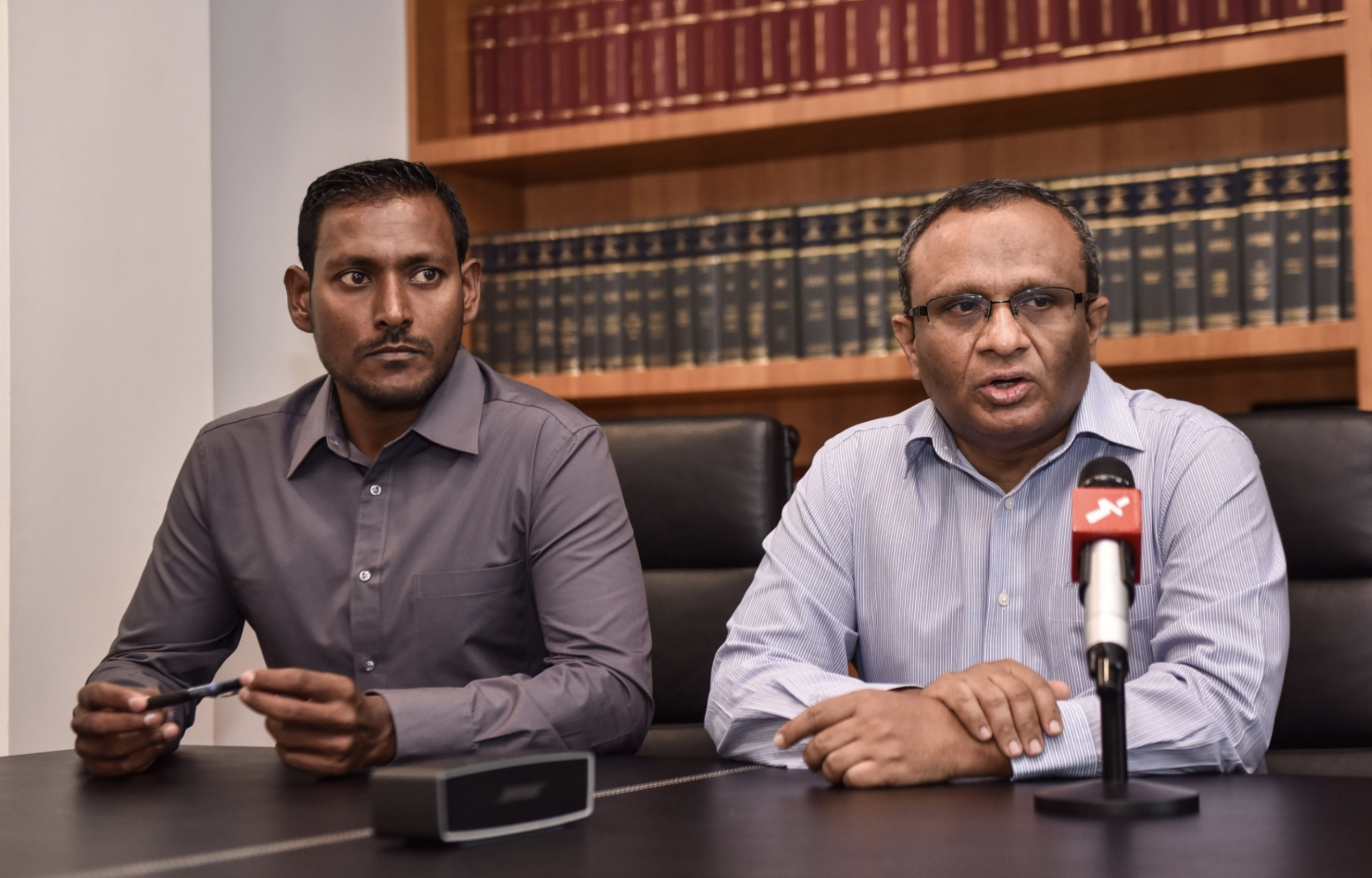Malé, Maldives – Prosecutor General, Hussain Shameem has said that he will respect the Supreme Courts decision on the travel ban placed on former Vice President of Maldives Abdullah Jihad via the confiscation of his passport as unlawful.
In a tweet he posted, PG Shameem said that while he respected the ruling of the Supreme Court, he would discuss the matter with Attorney General to look in to the possibilities to amend the law to avoid execution of laws.
Jihad, who faces charges in the Criminal Court over corruption of K. Fushidhihgaru tourism zone development project, requested the court for an opportunity to travel abroad for medical purposes, which was denied citing that he might flee the country.
Prosecutor Generals Office said that the initial decision made on November 29, 2011 by the cabinet was to develop Fushidhihgaru as a special tourism zone under 50 percent government equity joint venture company agreement. The decision stated that the government would not have to spend any money on the project and that the land rent of the project area would be paid to the government.
As the Finance Minister at the time, Jihad had signed a different agreement from the one which was passed by the cabinet. Prosecutor Generals Office had said that Jihad signed an agreement with a company called Prime Capital Maldives limited to make a joint venture company with 25 percent government equity instead of the 50 percent passed by the cabinet.
Because of the changed equity percentage, the government would lose a total of USD 604,713,750 in rent and primary location charge. In addition to this, as the equity had been changed from the initially passed 50 percent to 25 percent, the profit from the company’s business to the government would also be reduced.
Ex-VP Jihad appealed the case at the High Court, which overturned the Criminal Court’s rulings. The state then appealed the case in the Supreme Court, which sustained the decision of the High Court.
The Supreme Court stated that although Jihad has the means to stay abroad and not return to the country, there is no evidence that supports the fact that he might do so, except for an air travel ticket submitted to the court by Jihad himself.
It was also highlighted that prior to Jihad’s request to travel abroad, the state had not requested to have his passport confiscated, meaning that should he have wanted, he could have traveled abroad even without requesting the court.
While the Supreme Court issued a temporary travel ban on Jihad for the duration of the trial regarding the confiscation of his passport, the thee Judges presiding over the matter, Judge Aisha Shujune, Judge Ali Rasheed and Judge Dr. Mohamed Ibrahim unanimously ruled that Jihad’s passport should no longer be withheld.





